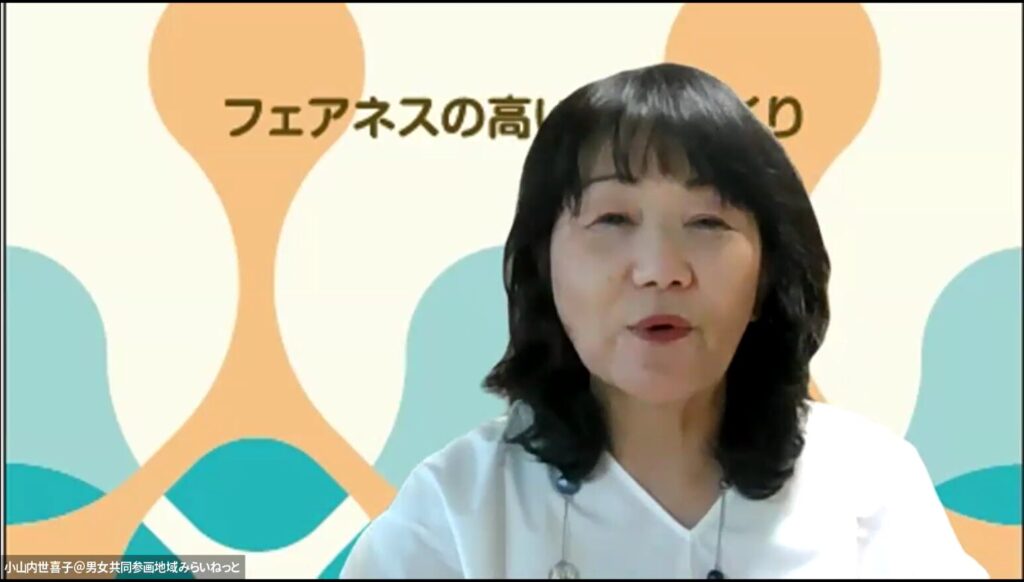Seminar Report:Six Months After the Noto Peninsula Earthquake: The Current Situation in the Disaster Area – A Report from a Gender Perspective

On July 22nd 2024, an online seminar titled “Six Months After the Noto Peninsula Earthquake: The Current Situation in the Disaster Area – A Report from a Gender Perspective” was held, hosted by the Department of Resilient Society of the Research Center for Social Transformation and the Center for Gender, Divesity and Inclusion at Saitama University, with co-sponsorship from the Kanto Region Committee of the Natural Disaster Research Council.
In the seminar, following an emergency online seminar held in January of this year, we heard from Ms. Sekiko Osanai, the representative of the general incorporated association “Gender Equality Regional Mirai Net,” who has been promoting disaster education from a gender perspective across the country. Since January, she has visited the disaster area in the Noto Peninsula six times and has continued to provide support.
Ms. Osanai, drawing from lessons learned from past disasters, continues her activities with the goal of “aiming for zero disaster-related deaths” and “providing support that leaves no one behind.” In the Noto Peninsula, she has been engaged in efforts such as improving the environment in evacuation centers and conducting monitoring activities to prevent isolation in temporary housing.
During the seminar, she shared her experiences with specific examples, including early support activities in evacuation centers, practical examples of addressing daily life challenges such as meals, toilets, and waste disposal, and current support efforts that are closely aligned with the needs of the affected individuals. Her presentation was enriched with on-site photos and numerous anecdotes.
Ms. Osanai also emphasized that the issues that surface during disasters have roots in challenges present during normal times, including the problem of fixed gender roles. She stressed the need to address these issues before disasters occur. Furthermore, she pointed out the importance of having the ability to notice the problems faced by disaster victims, and that each person must adopt a perspective that considers the daily lives of individuals.
During the Q&A session, there was a question from a high school student who is interested in being involved in disaster prevention and recovery from a gender perspective in the future, asking about what kind of learning would be beneficial. There was also discussion about how to support disaster areas with a gender perspective, and the exchange continued until the very end of the session.
The seminar was attended online by a wide range of participants, including university affiliates, local government officials, disaster volunteers, NGOs, citizen groups, media representatives, the general public, and high school students.
■ Here are some excerpts from the participants’ feedback on the survey:
“The seminar was very informative, as it provided specific examples of activities and insights gained from them.”
“I realized that in disaster areas, various challenges arise due to ‘physical gender differences,’ and hearing that ‘risks can be mitigated with preparedness,’ I felt the importance of creating disaster prevention and mitigation systems that reflect the perspectives of diverse people, including women, in daily life.”
“Thank you for not only the lecture but also for responding to questions thoroughly. There are still few researchers and little information on the topic of disasters and gender, so this seminar was very valuable, and I learned a lot.”
“I belong to a department mainly responsible for the physical recovery from disasters, but I have never had the opportunity to learn about the realities of evacuation life until the restoration work is completed, so this was a very good opportunity for me to learn.”
